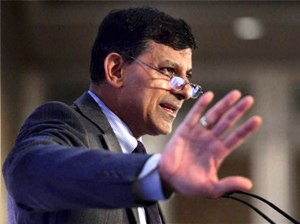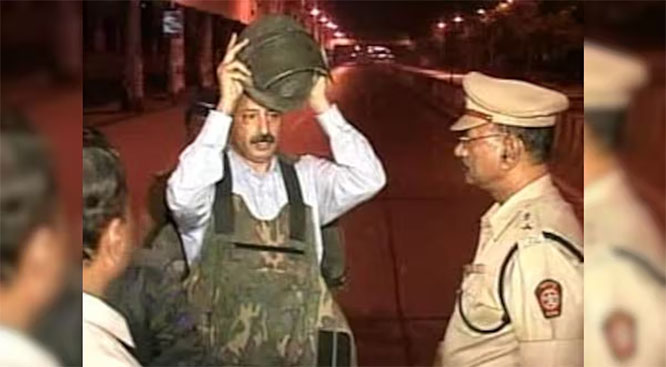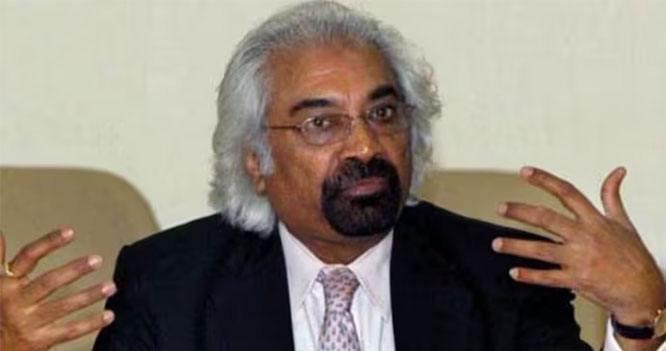New Delhi, Sep 3: A day before demitting office, Reserve Bank Governor Raghuram Rajan today said the RBI's ability to say 'no' to highest echelons of government has to be protected as the country needs a strong and independent central bank.

Recalling his predecessor D Subbarao's comments on policy differences with the government, Rajan said he "would go a little further" as he believes that "the Reserve Bank cannot just exist, its ability to say 'no' has to be protected."
"In this environment, where the central bank has to occasionally stand firm against the highest echelons of central and state governments, recall the words of my predecessor, Dr. Subbarao, when he said "I do hope the Finance Minister will one day say, 'I am often frustrated by the Reserve Bank, so frustrated that I want to go for a walk, even if I have to walk alone. But thank God, the Reserve Bank exists," the outgoing RBI governor said.
He further said that freedom to take operational decisions is important for the central bank.
"However, there are always government entities that are seeking oversight over various aspects of RBI's activities. Multiple layers of scrutiny, especially by entities that do not have the technical understanding, will only hamper decision making," he said.
Instead, the government-appointed RBI Board, which includes ex-officio government officials as well as government appointees, should continue to play its key oversight role.
"In this regard, all important RBI decisions including budgets, licences, regulation and supervision are now either approved by the Board or one of its sub-committees. Vacancies in the RBI Board, which have remained unfilled for many months now, should be filled quickly so that the full expertise and oversight of the Board can be utilised," he said.
Rajan said central bank governors sit at the table along with finance ministers at G-20 meetings for a reason. "It is the central bank governor, unlike other regulators or government secretaries, who has command over significant policy levers and has to occasionally disagree with the most powerful people in the country."
"It is dangerous to have a de facto powerful position with low de jure status," he said adding the RBI governor has the salary of the Cabinet Secretary and he or she is appointed by the Prime Minister in consultation with the Finance Minister.
The governor's rank in the government hierarchy is not defined but it is generally agreed that decisions will only be explained only to the Prime Minister and the Finance Minister.
There is an informal understanding in India that the RBI governor has the room to make needed decisions.
"In the interests of macroeconomic stability, none of this should be changed, though if these issues are ever revisited, there may be some virtue in explicitly setting the governor's rank commensurate with the position as the most important technocrat in charge of economic policy in the country," he said.
Rajan said macroeconomic stability is of paramount importance for India and also, the central bank must have the resources, knowledge and professionalism to act when the situation warrants.
India, he said, needs a strong and independent RBI to ensure macroeconomic stability.
Rajan said when the responsibilities of the RBI are fuzzy, its actions can continuously be questioned.
"Instead, if the constitutional authorities outline a framework for the responsibilities of the RBI, it can take actions consistent with those responsibilities and be held to outcomes," he said.
He cited the example of recently outlined inflation target.
"The inflation objectives recently set for the RBI by the government are an example of what is needed. Critics can lambast the RBI if it fails continuously to meet the objectives, but if they want it to lower interest rates even when the RBI barely meets its objectives, they should instead petition the government to change the objectives," he said.
The RBI chief added that RBI's role, however, in macroeconomic stability is still "fuzzy."
"While RBI clearly has responsibility for the safety and soundness of credit institutions and the stability of the external account, there are some areas that are hazier.
"For example, with an inflation focused framework, the RBI's ability to be accommodative depends on fiscal prudence from the centre and states. How much should the RBI warn on fiscal profligacy, including the building up of contingent liabilities, and when should such warning be seen as interfering in the legitimate decisions of the elected representatives of the people? This is an area where clarity would be useful," he said.








Comments
Add new comment